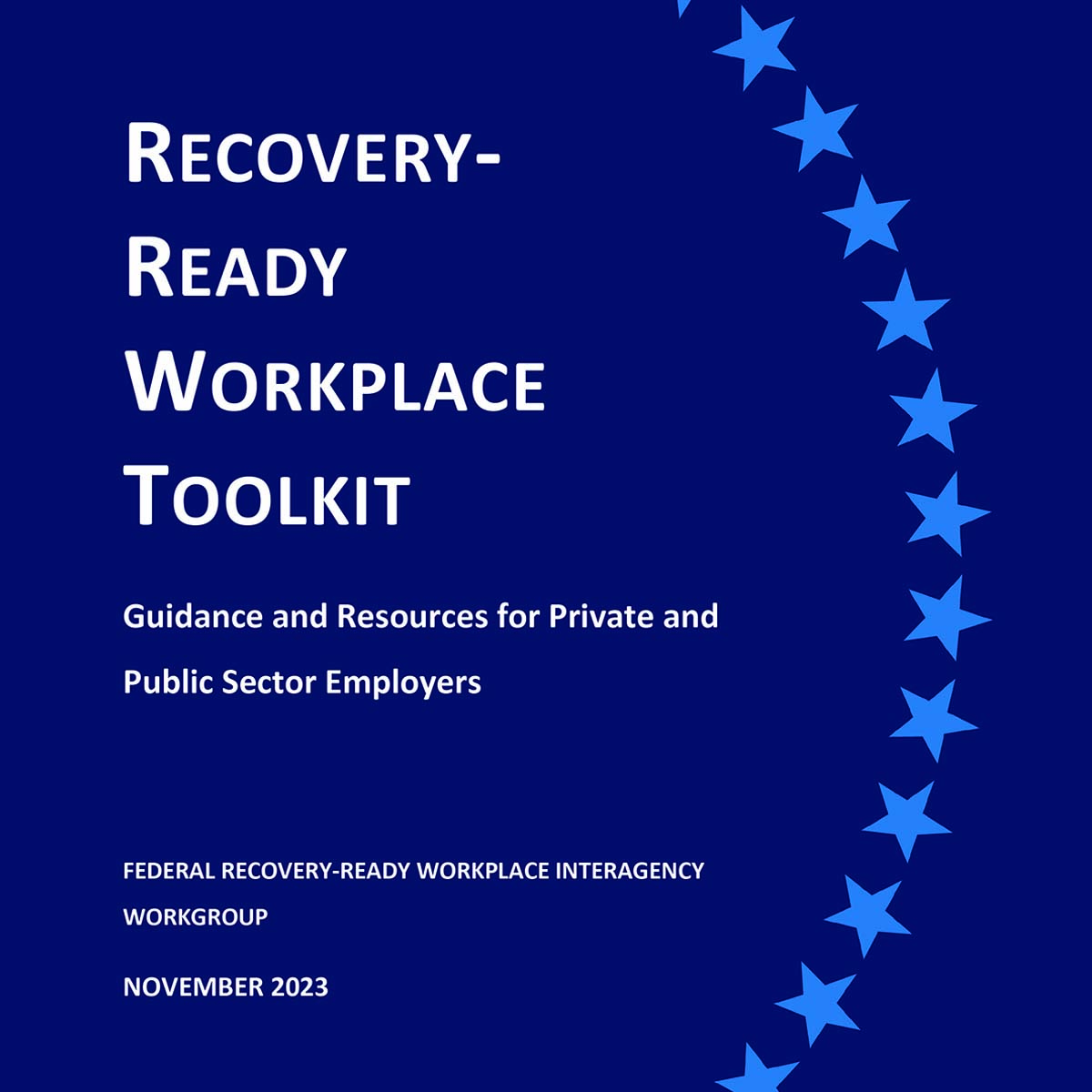
Developed through the efforts of the Office of National Drug Control Policy, the Domestic Policy Council, and 12 federal departments and independent agencies, this toolkit supports efforts in the fourth pillar of President Biden’s Unity Agenda for the Nation, beating the opioid and overdose epidemic. The toolkit also supports the implementation of President Biden’s inaugural National Drug Control Strategy, which calls for National Drug Control Program Agencies to expand employment opportunities for people in recovery from substance use disorder and to promote Recovery-Ready Workplace (RRW) policies.
This toolkit provides information, tools, and resources to help employers from all sectors—government, for-profit, non-profit, and not-for-profit—effectively prevent and respond to substance misuse in the workforce, and reduce its impact on employers and on the broader community. Made available through the Recovery-Ready Workplace Resource Hub, which is hosted by the Employment and Training Administration at the United States Department of Labor, this toolkit is intended to be useful across sectors and industries. It offers employers and local or statewide RRW initiative leaders a range of resources to help them effectively address substance use in the workforce and successfully hire, onboard, and retain people who are in or seeking recovery from substance use disorder.
Substance use in the workforce is widespread. In 2021, 26.9 million Americans aged 18 or older with a substance use disorder were employed. Of these, 77.6 percent (20.9 million) were employed full-time. Employers are both especially hard-hit by substance use disorder and uniquely positioned to address it in a way that benefits not only them, but their employees, and the broader community. Untreated substance use disorder is extremely costly to employers, resulting in missed workdays, reduced productivity, unnecessary employee turnover, and increased healthcare costs. Substance use disorder can also make hiring qualified candidates challenging and can increase the risk of work-related accidents and associated liabilities. Because of this, adopting RRW policies is not simply the right thing to do—it makes good business sense.
